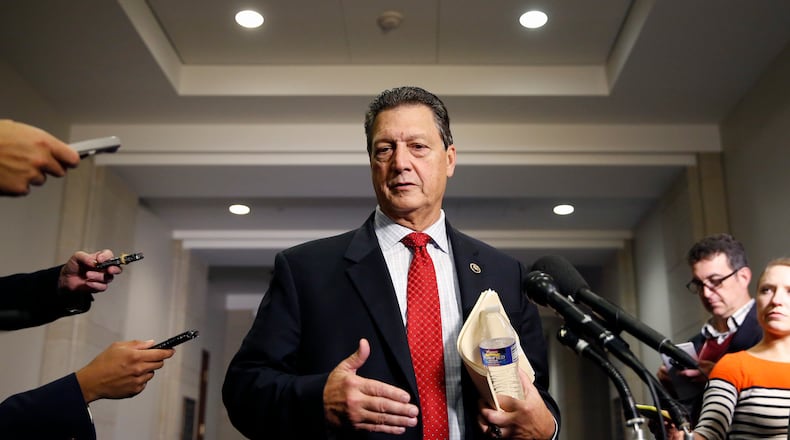If you want evidence that former Georgia GOP congressman Lynn Westmoreland may be passing on a run for governor, look no further than today's edition of The Hill, a (mostly) online newspaper geared toward a D.C. audience.
In what may be his public debut as a non-public man, Westmoreland has written an op-ed piece in opposition to the federal Restoration of America's Wire Act, a measure that would slap a nationwide ban on online gambling.
What is the need for this legislation? Only three states currently allow online Internet gaming: Nevada, New Jersey, and Delaware. RAWA would make online gambling illegal in all 50 states. And it has sweeping consequences for the structure of our government.
While times may be changing, Georgia has historically frowned on gambling. We have a long history of relatively strict laws against gambling. We prohibit wagering on horse and dog races. And—for the moment—we don't allow casinos. But we all recognize that states like ours can have conservative laws against gambling, while other states like Nevada can have casinos on every corner and allow online gaming.
Westmoreland goes on to cite similar opposition from his onetime Georgia GOP colleagues, U.S. Reps. Jody Hice and Doug Collins. And the states’ rights argument still goes down well with many Republicans in Georgia.
Both are examples of reasoning that might be used if one is forced to take a position on an issue that one would rather avoid.
But Westmoreland isn’t avoiding.
He’s provoking – on an issue that one doesn’t raise voluntarily if one is considering a GOP run for governor next year. In a Republican primary that’s already populated by two candidates, Lt. Gov. Casey Cagle and Secretary of State Brian Kemp, who rely on the support of religious conservatives -- many of whom are against gambling.
In an interview Tuesday afternoon, Westmoreland flatly denied that the op-ed signaled he wasn't interested in running for governor or that he was bucking anti-gambling religious conservatives.
"I'm not in favor of gambling either. What I am in favor of is the 10th amendment, which I think most religious conservatives are very much in favor of," he said.
The op-ed, according to Westmoreland, was done in conjunction with lobbying firm he's been doing some consulting work for -- he said he couldn't remember the firm's name -- and that the timing of the post was out of his hands and that we needn't read into it so deeply.
As for where he stands on running for governor, Westmoreland said he's talking to his wife about it "pretty much on a daily basis" but that he likely won't announce his decision until closer to July 4th.
"When Brian (Kemp) announced, everybody kind of hit the panic button. My phone lit up with people telling me I’ve got to announce. I said I’m not going to let somebody else’s decision force a decision for me," he said.
Online gaming can be a complicated issue. One supporter of the ban is billionaire Sheldon Adelson – whose Las Vegas casinos might come to harm if the average American can gamble from his or her couch.
One logical opponent would be fantasy sports contest operators, who made a big push in the Legislation this past session to have their competitions declared something other than gambling under Georgia law. The Georgia Lottery Corp., too, is a likely opponent -- given that it views the Internet as the distribution network of the future.
Read more:
About the Author
The Latest
Featured




